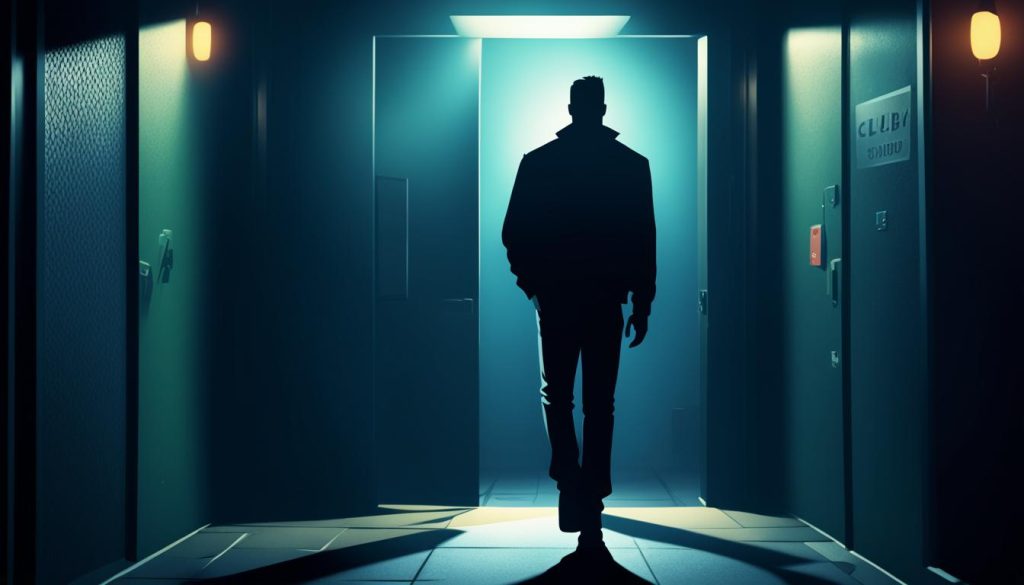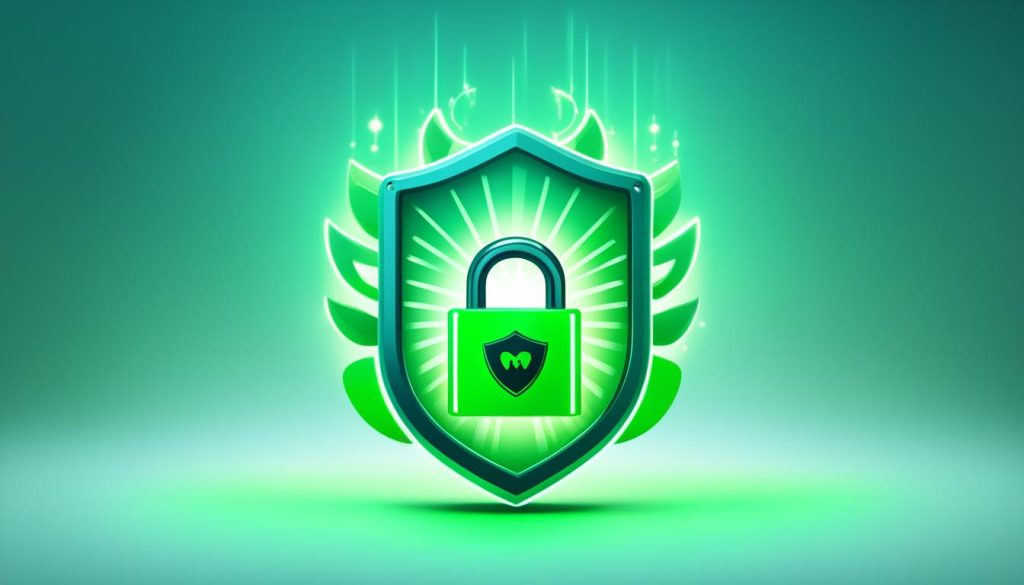As the sun goes down, nightlife hotspots call with fun, friends, and a break from daily life. But, these places can also have risks that affect your safety and online privacy. It’s key to know these dangers and how to stay safe while having fun.
Nightlife spots are exciting but come with security issues. Bars, clubs, and entertainment areas face problems like violence, vandalism, and drug use1. To tackle these, police increase their presence and enforce laws1. Yet, there are still worries about bouncer training and fairness in police-club owner relations1.
But it’s not just about staying safe in person. Nightlife spots can also be a risk online. Using public Wi-Fi can put your data at risk of cyber attacks. Hackers might steal your online actions or trick you into sharing private info.
Key Takeaways
- Nightlife hotspots can pose physical safety risks, such as violence, vandalism, and substance abuse.
- Connecting to public Wi-Fi networks in these venues can expose you to cyber threats like man-in-the-middle attacks and Wi-Fi phishing.
- It’s crucial to understand the dangers and take precautions to protect your personal safety and digital security while enjoying the nightlife scene.
- Staying informed about security measures and being proactive can help you have a safe and enjoyable nightlife experience.
- Collaborating with stakeholders, such as law enforcement and venue owners, can contribute to creating a safer nightlife environment.
Understanding the Risks of Public Wi-Fi Hotspots
Public Wi-Fi hotspots at nightlife venues can be risky2. They often lack security, making it easy for hackers to steal your data2. This can lead to malware, bank account theft, and identity theft2.
The Dangers of Unsecured Networks
Public Wi-Fi hotspots often don’t use encryption or passwords3. By 2016, most websites used HTTPS, but many public networks still don’t3. This makes your data easy to steal2. Always check with the venue to make sure the network is safe before using it2.
Man-in-the-Middle Attacks and Wi-Fi Phishing
Hackers can use public Wi-Fi to spy on your online activities2. They might also set up fake networks to trick you into sharing sensitive info2.
To stay safe, don’t let your devices connect automatically to unknown networks2. Using a VPN can also protect your data on public Wi-Fi324.
Be careful with public Wi-Fi to keep your data safe324. Knowing the risks and taking steps to protect yourself lets you enjoy public Wi-Fi safely.
Nightlife Hotspots: Are They Really Safe?
When the sun goes down, the city lights up, drawing people to nightlife spots. These places offer fun, new friends, and a chance to relax. But, there’s a dark side – the risks, especially with public Wi-Fi security5.
About half of women feel unsafe walking alone at night in quiet streets near their homes. This is more than men feel5. In parks, four out of five women and two out of five men don’t feel safe alone after dark5.
These places aren’t just risky for your safety. Cybercriminals target people using public Wi-Fi at these spots. With 78% of travelers drawn to Rome for its nightlife6, staying safe is crucial.
- 100% of safety guides suggest sticking with a friend in Rome6.
- 92% know it’s risky to accept drinks from strangers in Rome6.
- 85% plan their bar-hopping routes in advance6.
- 95% use maps apps on their phones for safety at night6.
Keeping nightlife safe needs a broad approach. Clubs should have at least one police officer for every 50 people inside7. They should also have well-dressed security and clear rules7.
It’s also key to stay safe online. Avoid doing important stuff on public Wi-Fi and don’t share personal info5. By focusing on safety, you can enjoy the fun of these places without worry.

“Ensuring the safety of patrons in these nightlife hotspots requires a multi-faceted approach. Establishments must prioritize security measures, such as having a minimum of one special police officer (SPO) present for every 50 club patrons when the total number of patrons reaches 50 or more.”7
| Metric | Value |
|---|---|
| Percentage of travelers attracted to Rome due to its vibrant nightlife offerings | 78%6 |
| Percentage of nightlife safety guides recommending the buddy system in Rome | 100%6 |
| Percentage of participants aware of the importance of not accepting drinks from strangers while partying in Rome | 92%6 |
| Percentage of individuals preferring to pre-plan their route when navigating between bars in Rome | 85%6 |
| Percentage of respondents agreeing that using a maps app provides added safety while exploring Rome by night | 95%6 |
Knowing the risks at nightlife spots helps you stay safe, especially with public Wi-Fi5. Keeping safe online and in person lets you enjoy these places worry-free.
Identifying Secure Wi-Fi Networks
When you’re in a nightlife hotspot and need to connect to Wi-Fi, it’s key to find a secure network. Look for networks with passwords and encryption, shown by a lock icon or “Secure” label8. Stay away from networks with names that sound similar, as they might be fake9.
Checking for Encryption and Passwords
To find a secure Wi-Fi network, check if it’s encrypted and has a password. Networks using WPA2 or WPA3 encryption are much safer than those without8. Passwords add an extra security layer, making it harder for others to get in.
The encryption standard has changed, with a Krack vulnerability found in WPA2 in 20178. Now, WPA3 is the top choice for public spots. Make sure the network shows a lock icon or says it’s “Secure” to keep your online info safe.
“Identifying a secure Wi-Fi network is the first step in protecting your personal information while enjoying the convenience of public hotspots.”
By looking closely at network details, you can lower the risks of public Wi-Fi. This way, you can stay safe online, even when you’re not at home or work.

Protecting Yourself on Public Wi-Fi
When you’re out enjoying the nightlife, it’s key to keep your online info safe and private. Public Wi-Fi networks can be risky because they might let others see your data10. Sites like banks use encryption to keep your info safe, but many apps don’t do the same10.
Using a VPN for Encryption
Using a virtual private network (VPN) is a good idea for public Wi-Fi. A VPN encrypts your internet use, keeping your data safe from hackers10. You can get VPNs for your phone to protect your data from apps too.
Enabling Two-Factor Authentication
Also, turn on two-factor authentication (2FA) for your online accounts. 2FA makes logging in harder by asking for a code or your biometric data, besides your password11. This stops hackers from getting into your accounts, even if they have your login details.
By doing these things, you can safely use public Wi-Fi and keep your data safe. Always be careful and put your online safety first when you’re out having fun101112.
Creating Your Own Secure Hotspot
Instead of using public Wi-Fi at nightlife spots, make your own secure hotspot. Tether your smartphone or tablet to connect to the internet through your cellular data. This way, you avoid public Wi-Fi risks13.
Tethering Your Smartphone or Tablet
Tethering lets you share your device’s internet with others. It’s a secure way to stay online, perfect for nightlife13.
- Turn on the tethering feature on your device. Where to find it depends on your device and OS.
- Choose a strong, unique password for your hotspot. This keeps others out and keeps your connection private13.
- Connect devices like laptops to your hotspot with the password. They’ll use your cellular data to go online.
- Think about using a VPN for more security. A VPN encrypts your internet, adding extra protection13.
- Update your device and security software to keep your hotspot safe13.
With your own secure hotspot, enjoy the nightlife safely. Just remember to keep your hotspot and devices secure.
Safe Browsing Habits on Public Networks
Avoiding Sensitive Information and Transactions
When using public Wi-Fi in nightlife spots, be careful and don’t do sensitive stuff14. About 76% of Australians use secure home Wi-Fi to keep hackers out. But, public Wi-Fi at places like airports and cafes is often not secure, putting users at risk14. Keep your browsing simple and avoid things like checking bank accounts or buying things online15. Identity theft is common on public Wi-Fi, and leaving your Wi-Fi on can increase your risk15.
Free Wi-Fi at businesses might have some security, but it’s best not to share things like credit card info on them14. Hackers can easily get to your personal info on unsecured Wi-Fi14. Use secure public Wi-Fi spots where the owners take security seriously to lower your risks14. Also, pick your Wi-Fi connections carefully to avoid unknown or dangerous networks14.
Keeping your data safe on public networks is key to protecting your personal and financial info.15 VPNs can make you more private and secure by encrypting your data, which is great for regular public Wi-Fi users14. Turning off location services and file sharing on devices in public places also helps keep you safe14. Browsing only on secure sites with ‘https://’ and a locked padlock icon also protects your data on public networks16.
It’s wise to not check bank accounts or share personal info on public Wi-Fi to avoid data theft1415. Always be careful, like not leaving devices alone in public and turning off Wi-Fi after use for more security14.
By being careful with your browsing on public networks, you can greatly reduce the risks of using unsecured Wi-Fi and keep your data safe from theft or misuse141516.
| Risks of Public Wi-Fi | Protective Measures |
|---|---|
“Securing your browsing habits on public networks is crucial to safeguarding your personal data and financial information.”
Follow these tips to safely use public Wi-Fi and keep your sensitive info safe while avoiding risky online activities141516.
Keeping Your Devices Updated and Secure
It’s key to update your operating system, software, and apps often. This keeps your devices safe when using public Wi-Fi in nightlife spots. Updates fix known issues and shield you from cyber threats.
More than half of routers have easy-to-guess passwords, making them open to hackers17. Most IoT devices get updates for bugs and security when on Wi-Fi. But, many smart devices need you to update them manually, leaving them at risk if not kept up-to-date17. An old router can also put your connected devices at risk because of outdated security17.
Wi-Fi 7 is the newest internet standard for homes, with new routers now available17. It’s important to use unique passwords for each smart device to stop big security issues17. Using multi-factor authentication (MFA) adds an extra layer of security by asking for more proof even if the password is wrong17. Keeping IoT devices on a separate network from your personal devices can also stop a security issue from spreading17.
Tools like Wireless Network Watcher, Firewalla, and Fingbox can spot and fix network problems17. By being careful and updating your devices, you can lower the risks of using public Wi-Fi in nightlife spots. This helps keep you safe from possible security issues.
“Keeping your devices updated is like wearing a seatbelt – it’s a simple step that can protect you from serious harm.”
Conclusion
Enjoying the nightlife while keeping your digital security in check is key. Knowing the risks of public Wi-Fi18 and finding safe networks19 is important. Using a VPN and avoiding risky activities helps keep your info safe20.
When you’re out in the city or at local spots, being aware of dangers and taking steps to protect yourself is crucial. This guide gives you the tips you need to enjoy the nightlife safely. You can have fun and keep your data safe at the same time1820.
Keeping your online life safe at night is about more than just staying safe. It’s also about being responsible with your digital life. By being careful and following the best practices, you can enjoy the nightlife to the fullest. And you’ll keep your online identity and stuff secure19.
https://finserviceshub.com/clean-price-a-professionals-guide-to-mastery/
FAQ
What are the potential security risks of using public Wi-Fi in nightlife hotspots?
Public Wi-Fi in nightlife spots can be risky. These networks often lack encryption or passwords, making your data easy to access for hackers. They might also set up fake networks to steal your info or watch your online actions.
How can I identify a secure Wi-Fi network in a nightlife hotspot?
Look for a secure public Wi-Fi in nightlife spots by checking for a password and encryption signs like a lock icon or “Secure”. Don’t trust networks with names that sound similar to others, as they could be scams.
What can I do to protect myself when using public Wi-Fi in nightlife venues?
Stay safe on public Wi-Fi by using a VPN to encrypt your data. Also, turn on two-factor authentication on your accounts to add an extra security layer. This way, even if hackers get your login info, they won’t get in.
Is there a way to create my own secure hotspot in a nightlife venue?
Yes, you can make your own secure hotspot by using your smartphone or tablet’s data connection. This way, you can avoid public Wi-Fi risks and stay safe online.
What should I avoid doing when using public Wi-Fi in nightlife hotspots?
Avoid doing sensitive activities on public Wi-Fi, like checking bank accounts or sharing personal info. Stick to basic web browsing to keep your data safe.
How can I ensure my devices are secure when using public Wi-Fi in nightlife venues?
Keep your devices safe on public Wi-Fi by updating your operating system, software, and apps regularly. These updates fix vulnerabilities and protect you from cyber threats.

